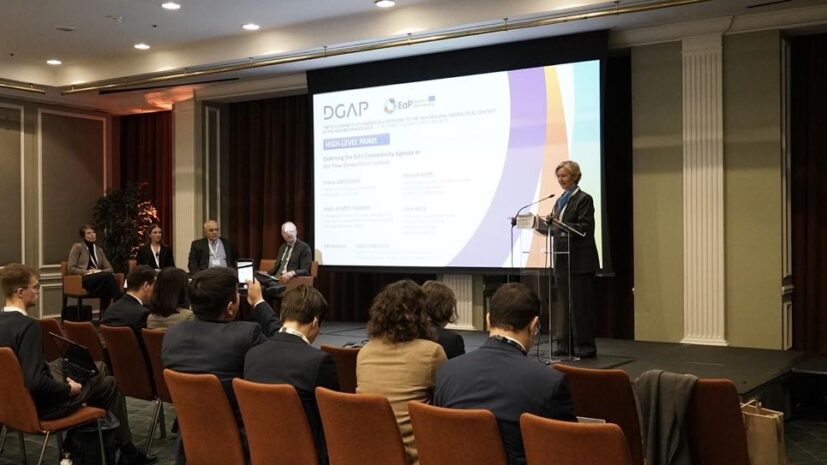
Joining the EU Digital Single Market – New Challenges for Ukraine
The paper assesses the state of Ukraine’s readiness to join the EU Digital Single Market (DSM). It looks at obstacles and bottlenecks, risks and implications for certain areas of the digital market. In addition, it suggests possible ways by which Ukraine’s accession to the DSM can be accelerated and the measures to accelerate this process.
Abstract
In 2018, Ukraine began taking its first steps towards integration into the EU’s Digital Single
Market, in order to simplify access to the EU market for Ukrainian companies, reduce barriers
to online trade, implement European cybersecurity and data protection standards, and attract
investment in digital infrastructure. Initially, the scale of the necessary changes was estimated
to be much smaller, and with the expansion of EU digital legislation, the scope of the norms
required for implementation has grown significantly On 15 December 2020, the Ministry of Digital Transformation of Ukraine presented the study “Ukraine’s Integration into the EU Digital Single Market: Potential Economic Benefits”,1
which contains expert assessments and actual calculations of the potential economic effect upon
Ukraine.
Ukraine has taken steps to implement the changes required to enable it to integrate into the
Digital Single Market (DSM), according to the measures contained in the EU–Ukraine Association Agreement. In particular, the integration depends upon regulatory alignment in the areas of electronic communications, electronic identification and electronic trust services, postal and financial services, electronic payments, cybersecurity and data protection, within the
framework of the updated Annex XVII-3, which, according to the authors of this study, “will lead to the introduction of the latest EU standards in the field of electronic communications in Ukraine. Ukraine is also gradually converging with regards to other components of the DSM, such as electronic identification, electronic payments and settlements, protection of intellectual property rights on the internet, cybersecurity, personal data protection, and so on. These steps, in turn, ensure Ukraine’s gradual integration into the DSM, which will facilitate digital transformation within the country and open a window of new opportunities for citizens and businesses”.2
The main goal of Ukraine’s integration into the DSM and the interoperability of digital services
is to enable Ukrainian businesses to provide services to the EU population and vice versa – to
allow European companies to enter the Ukrainian market without additional regulation, that
is, equal regulation of the digital market. For the EU and Ukrainian populations, the benefit
is an increase in the number of companies providing digital services, which may ultimately
reduce the cost of such services.
This article provides a brief description of the identified obstacles and bottlenecks, assesses
the risks and implications for certain areas of the digital market, and suggests possible ways
by which Ukraine’s accession to the DSM can be accelerated and the measures to be taken that
can assist with this.
By studying the statistics on the information and communication technologies (ICT) sector
in Ukraine before and after the full-scale invasion makes it possible to determine the current
state of the market and its development prospects. Based on the author’s analysis of the legal and regulatory framework currently in place in the EU and to be implemented via Ukrainian legislation, the article assesses the state of Ukraine’s
readiness to join the DSM.
_____________________________________________________________________________________
The Research paper was published by Institut für Europäische Politik (Germany) & Institute for Economic Research and Policy Consulting (Ukraine)



